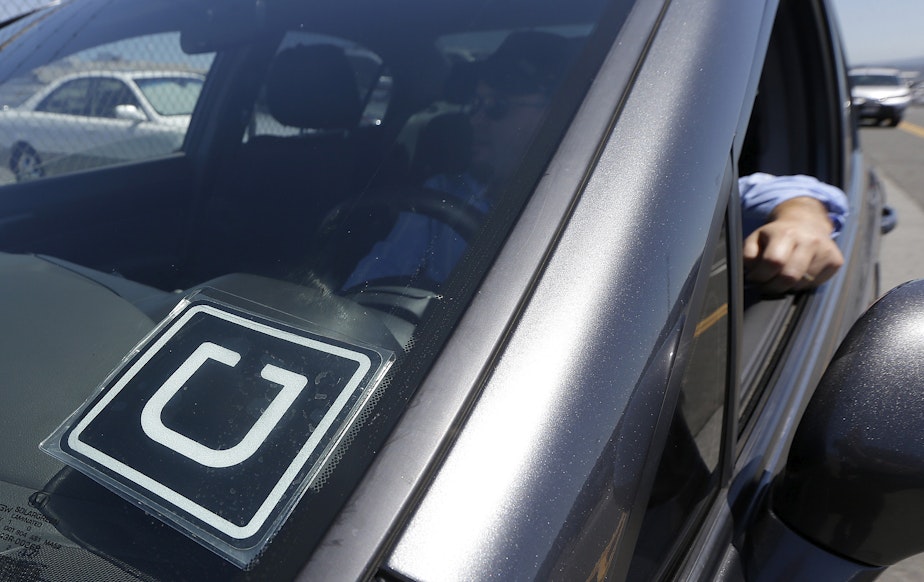Do Uber and Lyft make traffic better or worse? Seattle wants to find out

Downtown Seattle streets are getting congested. This month the city will roll out its plan to redesign downtown’s roads to ease traffic. Part of that includes examining where Uber and Lyft fit in.
Scott Kubly, who directs Seattle’s department of transportation, says he’s not sure if Uber and Lyft are making traffic better or worse.
Kubly: “We don’t really know what they’re doing because they’re not sharing the data with us. So we have to assume that it’s making traffic worse without any data. Because there are times when Ubers and Lyfts are cruising around with nobody in them. Right? So that to me, intuitively says that’s making the situation worse.”
But Uber and Lyft operate carpool services too — where they’re carrying more than one person in the same vehicle.
Kubly: “That could be making it better. But we just don’t know because we don’t have the data.”
Sponsored
Uber's Andrew Salzberg: “I think it’s easy to get stuck in the trap of, ‘We have data – we don’t have data.’”
He says Uber is happy to share data. Just not raw data, which could help its competition. He says Uber shares Seattle’s interests.
Salzberg: “The goal here is the same, right? You want to use street space more effectively, we want to use the backseats of cars more effectively. So the interests are very much aligned.”
Seattle officials want data, so they can make informed decisions about the redesign of the city’s transportation grid.
Uber and Lyft have sued Seattle to protect that data.

